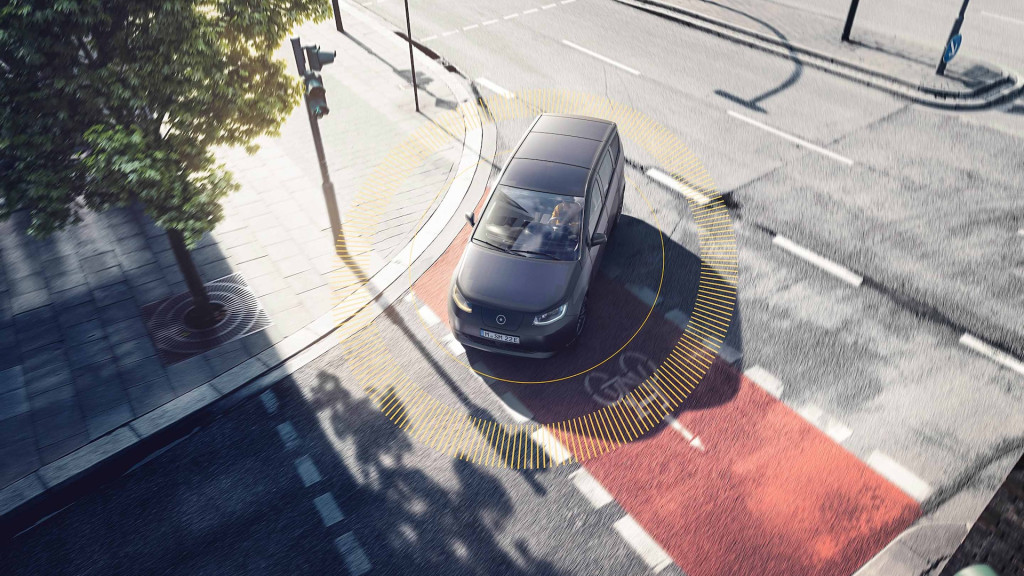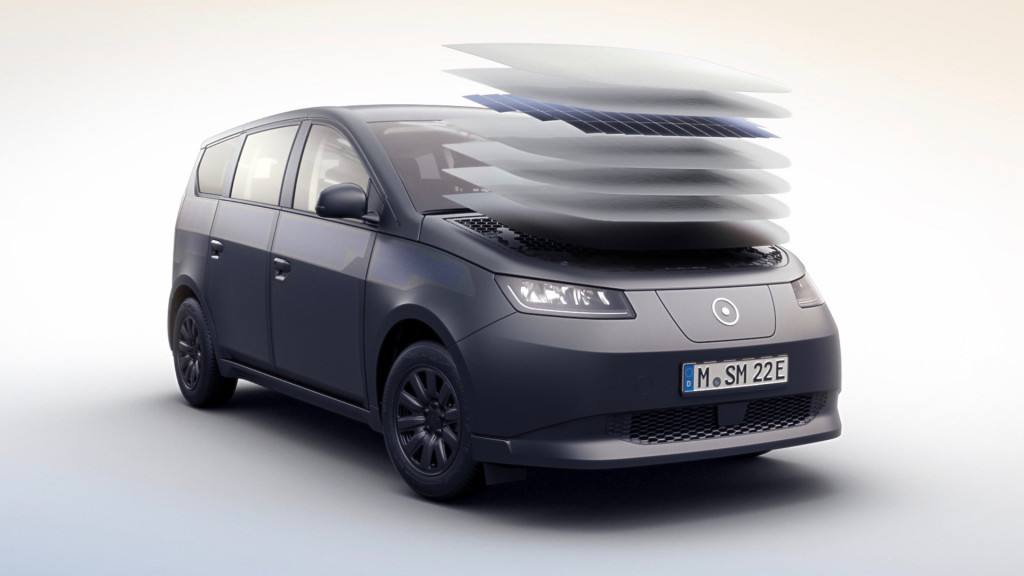[ad_1]
Sono Motors announced Tuesday that it had completed the first crash tests of its Sion EV, which has solar cells integrated with every body panel.
The company said in a press release that those panels “behave as predicted,” with no splintering of the polymer-based material in a 31-mph frontal crash test, confirming no additional risk to vehicle occupants or bystanders.
This test, performed at specialist facility CSI in Italy, will be the first of many for the Sion. Sono anticipates conducting around 300 crash tests to homologate the Sion under the European New Car Assessment Program (NCAP), as it’s only accepting reservations from European customers right now.

Sono Sion
Sono also detailed the driver-assist features that will be available on the Sion. Forward collision warning, automatic emergency braking, lane departure warning, lane keep assist, a driver attention monitor, traffic sign recognition, and rear park assist will be standard at launch. Sono plans to add adaptive cruise control after the start of production via an over-the-air (OTA) update.
The Sion is perhaps the first car due for mass production that will use every body panel as a solar panel, which Sono has said can extend the estimated 190-mile range by up to 152 miles per week in optimal weather conditions, as well as allow the car to be a mobile home power bank.

Sono Sion production model
The pace hasn’t exactly been speedy. The company showed a production version of the Sion in 2019, which it’s evolved significantly since then. It’s now scheduled to start production at contractor Valmet in Finland later this year, with a base price equivalent to $27,000 at current exchange rates.
Last summer, Sono reported that it had hit 20,000 reservations, and with this week’s announcement it reiterated that for now reservations can only be made in the EU, and it doesn’t accept reservations from the U.S. But that hasn’t kept the company from trying to woo U.S. fleet business for its solar tech, which also includes components to add supplementary solar power for diesel trucks and buses.
[ad_2]
Source link




